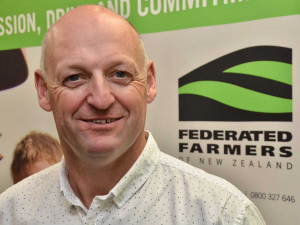Federated Farmers has some advice for farmers operating under COVID-19.
Prime Minister Jacinda Ardern says farmers are an ‘Essential Service’ that can continue operating under the Level 4 COVID-19 lockdown from midnight tonight.
Services associated with the primary sector, including food processors, diagnostics, farm suppliers, freight and trucking can also go about their business, while taking all practical steps to limit people to people contact.
Federated Farmers says the confirmation that these services are vital to helping the nation survive the virus crisis will be a relief and reason for pride for many farmers and workers in those associated industries.
But for some, there remains a pressing concern - the drought, and how to feed stock.
Manawatu-based Dion Fleming, Federated Farmers arable vice-chairperson, maize, says that while national grain stocks are depleting there is still maize grain available from the Manawatu and Gisborne districts, as well as barley from the South Island.
"In what is normally a slower time of year for our silo complex/feed mill we have seen a large number of dry stock farmers turning to maize as a solution to help fill their feed gap," says Fleming.
"Whole maize for sheep and kibbled maize either straight or blended for dairy and beef animals are proving popular and every day there are utes, trailers and truck units rolling in the gate from all over the lower North Island for 1-tonne bags and bulk loads of feed for dry farmers."
Care needs to be taken while transitioning animals onto different diets/feeds but Fleming says it’s not difficult and the results are well worth it,
Brian Leadley, the Canterbury-based Federated Farmers Arable vice-chairperson, grains, says the South Island grain harvest is largely complete now, with most growers happy with yields and quality.
"From spring 2019 surveys the expectation was for a slightly reduced total tonnage due to a reduced planting, particularly in feed wheat and barley. The feeling now is the reduction will have been replaced with a return to good yields following the last two poor production seasons," says Leadley.
"Currently wheat and barley would be available from the South Island suitable for many classes of livestock to help bridge feed shortages and support the North Island feed suppliers and livestock farmers."
Leadley says care is needed gradually transitioning stock to grain — they’ll need adequate water while this happens.
"For this reason it is best to start feeding early while there is some other feed available to feed with the grain. The grain will also ensure the other feeds last longer. Also, following the harvest there is still supplies of ryegrass straw, as well as limited supplies of baleage available that would be a great blend with grain."











